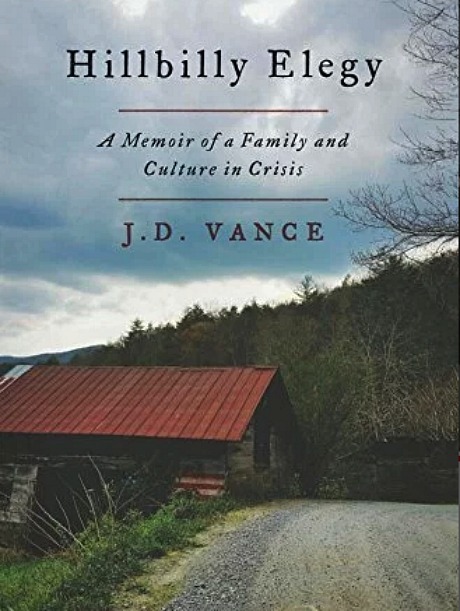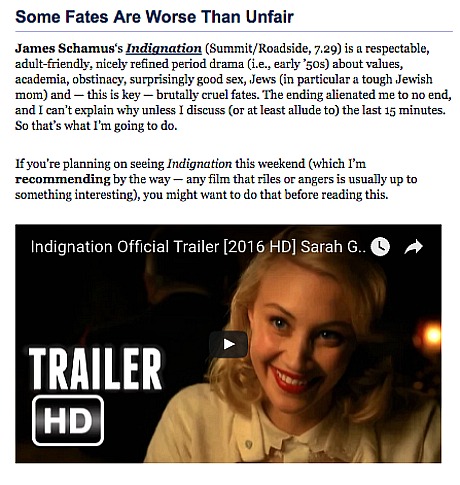Yesterday a conservative-minded ex-girlfriend suggested that I read Kyle Smith‘s N.Y. Post review of J.D. Vance‘s “Hillbilly Elegy: A Memoir of a Family and Culture in Crisis.” The review (which also includes interview quotes) is titled “Why ‘White Trash’ Americans Are Flocking to Donald Trump.”

Vance is a successful blue-state guy (a “principal” at a Silicon Valley investment firm, lives in San Francisco with wife and family) but he comes from a hillbilly rustbelt town in Ohio, and apparently knows whereof he speaks about downmarket lifestyles and despairing Appalachian culture. A key passage from Smith’s review:
“When Vance returns home these days, he sees yard after yard festooned with Trump signs. Trump’s attacks on the media and political correctness make Vance’s people stand up and cheer. From the Democrats, they draw the same sense of condescension that struck Vance when, at Yale, another student said she couldn’t believe he was in the Marines because he was a nice guy.
“Trump’s me-against-everybody combativeness, his refusal to back down, his vows to disrupt Washington deal-making are giving the hillbilly class a feeling they haven’t had in decades, [which is] that they’ve got a friend at the top.”










